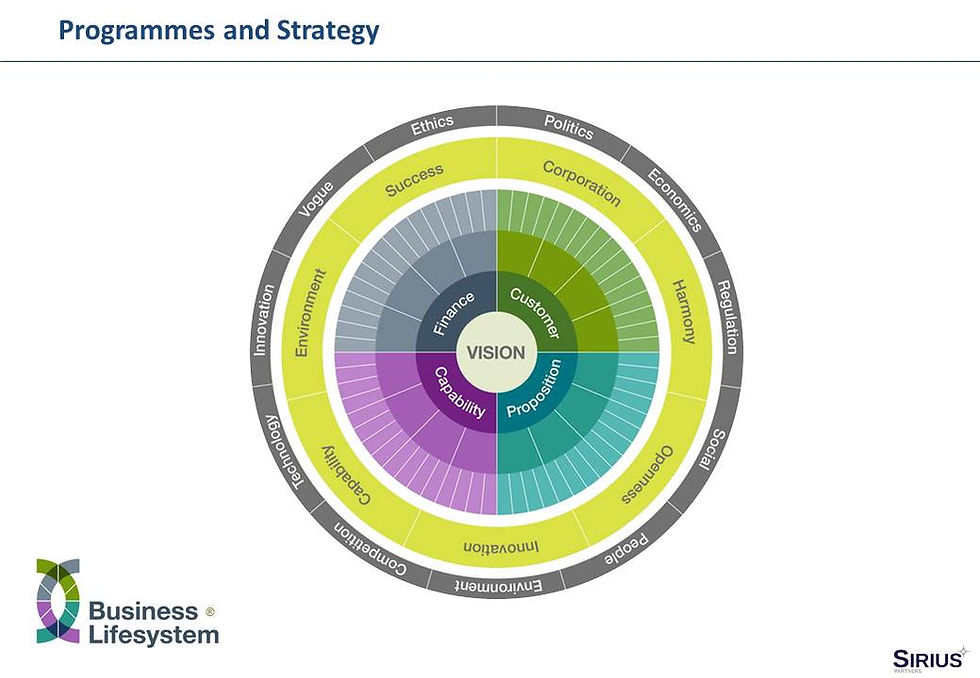Is it possible to plan the NHS?
Imagine an organisation. An organisation where the vision is to change lives for the better. An organisation where success is measured by the transformation of its population’s health. An organisation which strives to provide complex, challenging health services in hospitals, homes and communities.

Now, imagine attempting to develop an effective strategy for such an organisation in an external climate of change and convolution.
The right NHS strategy?
Developing the right strategy in a complex NHS organisation – from a CCG, to a NHS Trust or across the local health system - is tough to get right. It is not just about aspiration, ambition, leadership, and visioning. It is about articulating the specific challenges that face your health and social care system now and in the future. Encapsulating how you are going to address such multiple, complex and fast-moving challenges.

Managing Successful Programmes® is a key part of delivering the transformation required to achieve that strategy.
As complex systems like the NHS grow over time, unnecessary complexity, confusion and even chaos can occur (which we refer to as “complex evolution”). This complex evolution can lead to a lack of clarity, consistency, priority and focus across the NHS system.
Through a strategic planning process designed specifically for highly complex systems such as the NHS, the current complexity can be revealed and made sense of; the desired future designed, and the transformation required to move from one to the other can be achieved.
A strategic planning process for the NHS
Reveal the complexity
Design the future
Deliver the transformation

The NHS is an intricate mix of people and processes comprising a complex system. The strategic planning cycle is often lengthy and multifaceted. The Business Lifesystem® is a model for strategic planning which streamlines the process and ensures consistency across the NHS be it CCG, NHS Trust or across a health system.
Effective strategic planning defines the outcomes your NHS organisation or system is planning to achieve, expressed in a set of measurable objectives.
They define what you are trying to achieve, why you are trying to achieve them and how you intend to achieve them.
Business Objectives are an articulation of what your NHS system is trying to accomplish.
They are driven by the External Business Drivers and the Internal Value Drivers and in the Business Lifesystem® model are categorised into four Perspectives of a balanced scorecard:
Customer, Proposition, Capability, Finance.
Each of these Business Perspectives is further broken down to specific Business Objectives that demonstrate progress, development and delivery across the balanced scorecard.
Delivering Value in the NHS
Results (Business Outcomes) are a quantification of the business value, benefits and targets attributable to the Business Objectives that make them quantifiable, measurable, timely and specific.
They are often referred to as Key Performance Indicators (KPIs) and can be used in an executive dashboard to monitor the progress of the organisation towards achieving its strategy.

Enablers are the assets, processes, deliverables, capability and capacity in which the organisation invests in order to deliver the Results / Business Outcomes.
While Results (Business Outcomes) articulate and quantify the business value, Enablers articulate and quantify the business costs.
Enablers can be tangible assets, documents, processes, estate, IT equipment and systems or milestones that mark the delivery of one or more Enablers.
This is an aspect of NHS strategic planning which is often misunderstood or omitted completely.
Without quantifying enablers to deliver the required results, complex NHS organisations often underestimate the costs, or over-estimate the benefits of a particular course of action.
Strategic planning and Programme and Project Management in the NHS
Strategic planning is about identifying key challenges and how to overcome the associated obstacles in order to meet those challenges through a set of coherent actions.

It is therefore crucial that the achievement of those actions and associated results are managed effectively.
Anything that needs to be delivered or achieved within a complex NHS organisation (whether seen as business-as-usual, transformation programmes, delivery projects, benefits realisation projects or innovation initiatives) should have a controlling structure or vehicle managing it.
Managing Delivery in the NHS
In a complex organisation like the NHS these include governance, methodologies, processes, resource allocation/management and risk management.

A group of enabling projects which together provide capability and incur cost can be managed to deliver vital NHS programme results and value if managed effectively using best practice MSP principles.
Clarity, consistency, priority and focus
A structured approach to strategic planning incorporating best practice MSP can help turnaround the unnecessary complexity, confusion and even chaos which can occur as a result of the “complex evolution” of the NHS.
This helps to restoring clarity, consistency, priority and focus across the NHS organisation.

Is it possible to plan the NHS?
Developing a strategic plan for a complex NHS organisation may feel like an impossible task, but it’s not necessarily as tough as it seems.
Trying to jump straight to a difficult transformation is hard, that’s true.
But the secret to effective strategic planning in the NHS is to first reveal the current complexity in which you are working and make sense of it. Only then can you design the future.
It’s like trying to tie a shoelace which is already in a particularly tricky knot. Untie the knot, straighten out the lace, see how long it is and what condition it is in. Now tie the perfect bow. Well almost.
Reveal the complexity
Design the future
Deliver the transformation






























